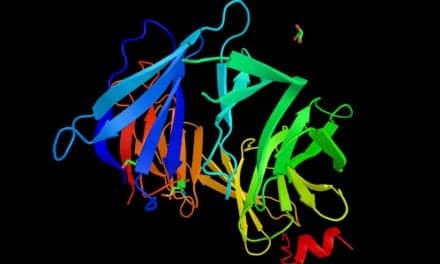Inanovate Inc, Sioux Falls, SD, and Raleigh, NC, a life science company specializing in the development of blood tests for cancer and autoimmune diseases, has secured an initial closing of $3.1 million on a series C financing round. Led by South Dakota Equity Partners, T. Denny Sanford, and Sanford Frontiers, a corporate affiliate of Sanford Health, the investment round will help to speed the development of Inanovate’s breast cancer blood test, which aims to identify false positives from screening mammograms and to reduce costly, stressful, and unnecessary follow-up imaging.
The test is part of a larger product development plan from Inanovate, which also includes a second test that aims to monitor the progress of breast cancer patients through therapy and beyond, and to identify a recurrence event in its earliest stage, when it may be more effectively treated and cured.
“We are excited to have secured investment that will allow our company to implement our development plan through the next 18 months,” notes David Ure, MBA, CEO of Inanovate. “We’re pleased to have partnered with investors who share our vision for improving cancer diagnosis and treatment through technology innovation. Our partners bring both expertise and passion to our investment team as we align to the needs and goals of one of the leading hospital networks in the country.”
The most recent investment builds on a strong year for Inanovate, which has so far included a $2 million Phase 2 small business innovation research grant from the National Cancer Institute, and a licensing and collaboration agreement with Sanford Health that provides access to intellectual property relating to a set of breast cancer biomarkers as well as patient recruitment and sample access for Inanovate’s trials.
“Improving breast cancer care is an important goal of ours,” says Kim Patrick, JD, chief business development officer at Sanford Health. “This protein-screening technology aims to improve the diagnosis of breast cancer and its recurrence.”

The senior development team at Inanovate’s Sioux Falls laboratory (from left): Robert Nelson, chief operating officer; Eagappanath Thiruppathi, PhD, director of assay development; and Chad Bishop.
To analyze the blood draw, Inanovate uses its biomarker analysis platform, the BioID 800. The instrument is compact, fully automated, fits on a benchtop, and uses disposable test cartridges.
“This is a highly sensitive but low-cost instrument that can recognize the presence of multiple different biomarkers from a small sample of blood in one low-cost, easy-to-use test,” Ure adds. “This approach to blood analysis can be extended to conditions other than breast cancer, including diagnostic, prognostic, and monitoring needs for other cancer types, as well as for a variety of autoimmune diseases.”
South Dakota Equity Partners has been following Inanovate since 2016 as it secured investments and started diagnostic trials, notes CEO Blaine Crissman, MBA, who also will join the company’s board of directors.
“The diagnostic trials they’ve conducted are very promising,” Crissman says. “We are very optimistic and excited about the future impact of this device. David is developing a really strong management team, and the involvement of Sanford Research is significant. Inanovate’s technology integrated with research through Sanford Health can bring this to patients seamlessly.”
A second closing of the series C investment round is anticipated for the second quarter of 2019.
“We congratulate Inanovate on this most recent investment and anticipate continued significant developments for this promising startup,” says Joni Johnson, executive director of South Dakota Biotech. “It’s exciting to see the relationship forming between our strong healthcare and medical research community and our biotech entrepreneurs, strengthened by our increased access to venture capital.”
For further information, visit Inanovate.
Featured image: Inanovate’s disposable blood test cartridge. Each cartridge can process up to 8 separate patient samples (8 separate blood tests). The patient samples are inserted into the outermost inlet wells, then the cartridge is placed into Inanovate’s BioID 800 blood analyzer. The analyzer automatically pulses small volumes of the blood samples across the ‘test areas’ of the cartridges (the 8 hexagon-shaped features in the center of the cartridge), generating data on breast cancer presence.





